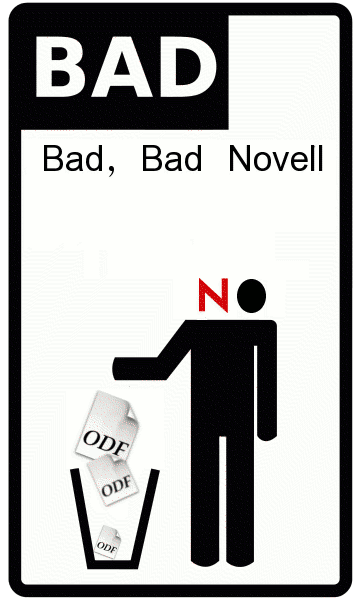President Obama Ignores the US Population’s Plea to Abolish Software Patents (Updated)
Parliament protects the “special interests”, ignores the 99%

Summary: Inaction in the face of popular demand to abolish software patents, but it’s not over yet
THE other month someone initiated a petition against software patents. We did not have high hopes, but whatever the outcome, we said it would probably help prove and validate a corrupt status quo.
President Obama, a lawyer, did what we expected all along. Stefane Fermigier writes:
Obama administration responds to our petition to reform software patents wwws.whitehouse.gov/petitions#!/re… Me = not impressed.
Nobody is impressed. Here is the response from the FFII’s president (who can be more honest than the US president):
Obama ignores the Petition against software patents, issues a pro patent answer, I was expecting such answer
Here is the link to the response. It ironic that in a Drupal/GNU/Linux-powered site they just let software patents be. Shows their hypocrisy really…
Here is the massive Slashdot discussion about it. Timothy B. Lee wrote an excellent article about it:
The Obama administration has started an official petition website called “We the People,” in which Americans can propose and vote on petitions for consideration by the White House. Petitions that cross a popularity threshold (originally 5,000 signatures within 30 days) get an official response from the White House.
This being the Internet, one of the first petitions focused on software patents, asking President Obama to “direct the patent office to cease issuing software patents and to void all previously issued software patents.”
Also see the comments. It seems widely accepted that software patents must go. Consider signing the new petition if you are a US resident. The success of Free software may very well depend on this issue. █
“Today many people are switching to free software for purely practical reasons. That is good, as far as it goes, but that isn’t all we need to do! Attracting users to free software is not the whole job, just the first step.”
–Richard Stallman
Update: Here is a direct link to the new petition, which has started quite slowly. Well, after they spit on the population they can just claim that this population has no respect for those petitions. The patent lawyers crowd watches from a distance and the FFII’s president writes:
White House answer to the software patent petition was so bad that a new one is created, 20K signs needed in 30 days
We still find it difficult to believe that an administration run by lawyers will make the necessary amendment. But it helps show just who is really being served.
Exposed Microsoft Lobbyists No Longer Pretend to be Objective on Patent Issues
Summary: How friends and external staff of Microsoft help the company’s extortion racket against Linux and Android
Microsoft’s booster Ed Hansberry promotes the company’s extortion of Linux (all the boosters do this, even if it’s borderline criminal, as we explained before). The following disgusting apologism portrays extortion as “deals”, just as Microsoft is trying to do (part of the PR campaign and embellishment of racketeering). Read this with a grain of salt:
I am assuming this is a scroll bar or some sort of percentage indicator that displays while a page is loading in the browser and then disappears once it is done. Now, I know Microsoft has a lot of patents that are truly worthy of defending, but this is a bit much. Is there a browser on any platform that doesn’t have this feature? For its part, B&N doesn’t appear ready to settle on this feature at all, instead preferring to hash it out before a judge.
I wouldn’t look for the suits to stop anytime soon. At least Microsoft is ready to make licensing deals–for a price of course. Apple’s Steve Jobs wanted no part of licensing, instead preferring to give Android a premature death. The biography “Steve Jobs” quotes Jobs as saying “I’m going to destroy Android, because it’s a stolen product. I’m willing to go thermonuclear war on this.”
For those who miss some context, Microsoft claims to ‘own’ something like a progress bar and then extorts Linux-selling companies with it. The burden of litigation costs (deterrence) is what lets Microsoft essentially extort competitors and Apple’s patents have been equally ludicrous. Apple is said to be targeting Linux tablet sellers directly now. Shame on Apple and shame on Jobs for being of a pivotal role in this strategy. Microsoft and Apple are very much together in this. And their expert liar/spinner/spammer Florian Müller keeps posting pro-software patents links and other links to Microsoft boosters who attack Android/Linux (like this one), using any piece of muck he can rake to attack Android/Linux. He is not even hiding his agenda anymore, having been essentially forced to disclosure that Microsoft was paying him (when we found out about it through private sources). His new buddy Enderle is also getting links. Why pretend when everyone already knows you are funded by Microsoft?
Linux-hostile Microsoft Lobbyists Lie and Deceive
This one Microsoft lobbyist promotes other Microsoft-funded lobbyists, calling them “Industry body” in his ridiculous blog. He was there was there in 2005 when the infamous directive was being pushed by Microsoft, so he is being deliberately disingenuous. As the FFII’s president puts it:
Florian Muller names ACT an “industry body”, while he knows perfectly this is a Microsoft front shop
He also quotes pile of nonsense from the lobbyist: “Non-ideological analysts all agree that open source is thriving under the current legal framework”
Nonsense.
There is a new Ubersoft cartoon on Microsoft’s patent extortion against Android/Linux. It says it all really. People are getting it, Microsoft lobbyists are spinning it. Truth does not matter to them and they pretend to be something they are not. █
Linus Torvalds Thinks Microsoft Going To Court is a Sign That Its Business is Dying
Summary: A new interview with the lead developer of Linux covers the issue of patents, bringing to the surface some important viewpoints
Linus Torvalds has always been quite outspoken in his stance against software patents. In a new interview he emphasises this view and explains his own patents, which he says are on hardware. To quote:
I have filed at least 3 patents during Transmeta times. They were about hardware so I am happy about them. It was an interesting experience. I am not saying they were wonderful patents–I am saying it was interesting to see the crazy patent language you have to have and that’s the reason you have to have a patent lawyer because the language makes no sense. In US it’s technically English but it’s not really English. It’s like using English words but there are different meanings to them. There is a whole different set of rules about what things mean when they do a patent application. As I said it was a very interesting experience and I am not unhappy about that. It’s not as horrible as many patents.
I think patents probably work better in certain areas than they do in ours. Software patents? No. Process patents? No. They just don’t make sense.
“Personally,” he added, “I am of the opinion that going to court is a sign of a business that is dying. I am not saying that Microsoft is dying, it’s a sign, not a complete indicator.”
Let’s remember that companies are able to have patents also without being racketeers. IBM, for example, does not tend to sue companies using patents. Now that it applies for a patent on GPU-accelerated databases (partly hardware) we are reminded that IBM cannot be ignored either. “IBM is a heavy supporter of software patents,” adds the FFII’s president, who links to this article which says:
IBM has an idea how database access and data processing can be accelerated. IBM wants to take advantage of graphics processors to launch and execute database queries. Instead of traditional disk-based queries and an approach that slows performance via memory latencies and processors waiting for data to be fetched from the memory, IBM envisions in-GPU-memory tables as technology that could, in addition to disk tables, significantly accelerate database processing. According to a patent filed by the company, “GPU enabled programs are well suited to problems that involve data-parallel computations where the same program is executed on different data with high arithmetic intensity.”
Our goal is to get rid of those patent monopolies altogether. One step at a time we might get there. █
5 Years Since MIcrosoft’s Patent Extortion Began

Summary: The Microsoft-Novell deal turns 5
ALMOST EXACTLY 5 years ago (plus several hours) Microsoft bolstered its patent extortion racket by signing a landmark deal with Novell. We now see the consequences of this deal, with Microsoft claiming to be making almost billions of dollars from Linux-based platforms it never created, only insulted and attacked, sometimes by proxy (e.g. SCO). Techrights turns 5 in just over a week from now. We shall write about the anniversary properly at that stage. █
Patents Roundup: Software Patents, Patent Trolls, Reexaminations, and Apple
“The patent system is all about generating paper.” –FFII’s president

Summary: An assemblage of news on the subject of software patents, especially with relation to software freedom
Anton Hughes, a Ph.D. Candidate at the University of Tasmania, wrote a good article about the misguided correlation between patents and software innovation, explaining quite clearly and scientifically what software developers know too well based on intuition:
Do patents create software innovation? Computer says no
It’s a question worth asking in the context of Apple’s recent body blow to Samsung, which will see Samsung’s Galaxy Tab 10.1 kept off Australian shelves until a full patent case can be heard.
The patent wars have been raging for the best part of a year and involve some of the biggest companies in technology (Apple, Google and Microsoft for a start). Those watching this instalment might wonder what all that arguing has to do with innovation. Isn’t innovation what patents are all about?
In theory, the patent system is an important mechanism for benefiting society through the encouragement of innovation, not litigation.
To see how the world might look without software patents, you don’t have to look too far.
Those who believe that, in the words of former US Supreme Court judge Oliver Wendell Holmes, Jr, “a page of history is worth a volume of logic”, can look back to the not-too-distant past. After all, software hasn’t been around that long.
The first known use of the word “software” in print was in 1958, and a fledgling software industry only took root in the mid-1960s.
A US President’s Commission looked at the patentability of software in 1966. It recommended Congress pass laws excluding software from patentability. Minimal patenting of software seems to have started in the 1970s, although it wasn’t really until the 1980s that it began in earnest.
In Australia, it wasn’t until 1991 that a court first considered the patentability of software, although the Patent Office had changed its early position against software patents to match the US position the year before.
In a later post we are going to show that the current US president does (or doesn’t do) about this subject.
Pressing on a bit, Mr. Pogson is quoting Groklaw on the issue of patents, concluding:
Patenting Words
[...]
This shows software patents are about ideas and not about inventions. They are about words and not deeds. They are not helping promote the advancement of technology.
Groklaw also keeps track of reexamination of the patents of Microsoft’s patent troll and co-founder. He potentially sued the whole world (bar Microsoft). To quote:
There has been a bit of reexamination action on the Interval Licensing patents asserted by Paul Allen against everybody and their brother (or sister). As we noted back on August 3rd (Interval Files First Response to Office Action), Interval filed a response to the examiner’s office action on U.S. Patent No. 6,788,314 agreeing to the cancellation of claims 5 (independent) and 6 (dependent) but adding 16 new dependent claims. The USPTO is now ready to make those changes final unless it receives a further challenge from the party making the reexamination request by November 14, 2011. (Action Closing Prosecution (non-final) [PDF only]) This notice is just short of making the determinations final.
In a separate action the USPTO has issued a non-final action on U.S. Patent 6,034,652. (Reexam – Non-Final Action [PDF;Text]) The requesting party had challenged four independent claims and five dependent claims in this ex parte reexamination request. After considering the request and all of the cited prior art, the examiner has determined that three of the independent claims and one of the dependent claims are unpatentable. The remaining challenged claims are confirmed.
This can help show that software patents in general cannot pass muster in court. Even though some companies keep celebrating software patents in press releases and modified reprints of this PR, the fact remains that all ideas come from something prior. Innovation is usually the joining of existing strands of research and this one is no exception:
The United States Patent and Trademark Office recently granted ACS a rare “no prior art” patent for their breakthrough technology: Supercomputing Engine Technology or SET.
Supercomputers have been around for a very long time and just saying “no prior art” (in the press release) does not make it so. They did not produce the whole thing from scratch and just because examiners failed to find the inspirations does not mean that no prior art exists. They already have copyrights, so why monopolise this whole family of ideas? It is just one of those myths about a lone researcher having a Eureka Moment and coming up with something completely different that was never attempted before. By that definition, many like myself do this every day, but to claim full credit for what merely extends prior work is silly and even arrogant. Steve Jobs was a lot like this. Academia tends to be very much the opposite. Humility and patent lawyers’ greed don’t sit too well together. Humility is not a business model.
Check out this new article titled “Software firm wants a piece of the legal pie”. If it wants a legal pie, then it is not a software firm; it might be a troll and it might just be an aggressor that shames the software industry as a whole. Software developers want nothing to do with patent lawyers; they want to just code in peace.
A patent troll called VirnetX [1, 2, 3, 4, 5, 6, 7, 8, 9, 10, 11, 12, 13, 14] rears its ugly head again, this time targeting Apple. Based on this one source, patent lawsuits are surging, which means that patent lawyers get to take jobs away from developers. More people review legal documents rather than code and the patent lawyers from London dare to complain:
Some correspondents have been wondering why the IPKat hasn’t been able to provide more, and better, coverage of the progress towards the European Union’s proposed Unified Patent Court and the Unitary Patent System. Well, you try it! As soon as you start reading one document, along comes another one!
Jeremy Phillips from that blog says in Twitter that “Looking at the mass of paper generated by EU patent reform tinyurl.com/63wq4m2 I think the US approach to pat. reform was easier to follow”
The comeback from the FFII’s president is priceless:
The patent system is all about generating paper.
Yes, patent lawyers (special interests) view companies in terms of paper piles, not products (“Patents may not save RIM from a downward slide to acquisition or even bankruptcy,” says IAM’s headline and “Kodak Patent Sale Could Save Photography Company From Bankruptcy” is another noteworthy headline).
Apple recently managed to write several pages of text on the “slide to unlock” invention, which has basically been around for millennia or at least centuries (but only recently viewed as the “invention” and thus monopoly of Apple). Here is what ZDNet had to say about it:
In last week’s episode of “Can you top this dumb patent?” we discovered that Apple had patented the design element of sliding to unlock a device. Gosh, and I recall my grandpa’s front gate having a slide-to-unlock device in the 60s! Boy those Apple guys had to get up early in the morning to invent that one
Sarcasm aside, does” every Android device now infringe this Apple patent?” Or, for that matter, every Windows 8 device? Well, yes, they probably do. But does that mean that Apple is really going to be using this patent to sue everyone and anyone who uses the slide metaphor in their design? I asked some prominent intellectual property (IP) lawyers about it and this is what they said.
Here is TechDirt‘s take:
The Real Issue With Apple’s ‘Slide-To-Unlock’ Patent: Double Patenting & Bogus Continuations
Lots of folks sent in variations on the story last week that Apple was able to get a patent on the “slide to unlock” feature. Most of the submissions were outraged that this patent was granted, with many pointing to prior art from before the patent was filed. What most people missed was that this patent, 8,046,721 is actually a continuation patent from an earlier patent, 7,657,849.
The real issue here isn’t just that Apple was able to patent something as simple as “slide to unlock,” but how it shows the evils of double patenting and the use of continuation patents. We’ve pointed to problems with continuation patents in the past, in that they have been used to “submarine” legitimate inventions. You could just watch what others were doing in the space, and file a later “continuation” patent on your earlier patent, and have an earlier priority date, despite actually copying the work from others.
Apple is claiming to ‘own’ tablets with revelled edges and buttons using some ridiculous patents and fake ‘evidence’ that it tampered with. According to a very new report, this strategy from Apple is failing. To quote: “Spanish computer maker NT-K had its Android tablets impounded, at Apple’s request, but has now been vindicated by a local court and is seeking damages from Cupertino for lost earnings and reputation.
“Apple reckoned the A91 tablet, made by Nuevas Tecnologías y Energías Catalá – you must have heard of them – is a rip-off of the iPad design, just like the Samsung Tab, allegedly.
“Since last November NT-K has had shipments of its fondleslab impounded on arrival from China. But in a triumphant blog posting the company has declared victory, with local media reporting that the Valencia court has dismissed Apple’s claims – and lifted the ban.”
Meanwhile we also learn that Twitter thwarts a patent troll with another ridiculous patent:
Twitter Beats Patent Troll Who Patented Letting Famous People Interact Online
Earlier this year, we covered how an operation called VS Technologies — really a patent lawyer by the name of Dinesh Agarwal, held patent 6,408,309 on a “Method and system for creating an interactive virtual community of famous people.” He then sued Twitter over this patent, though we couldn’t figure out how Twitter actually infringed on the claims in the patent itself. While we were disappointed, a few weeks back, that the judge didn’t dismiss the case pre-trial, it looks like the trial itself was pretty speedy, and the jury wasted little time in agreeing with Twitter that it did not infringe at all.
The USPTO has become a total embarrassment and even the US courts help show this. Later on we’ll write about what can be done about it, as our Guest Editorial Team has already done to a degree. █
11.02.11
TechBytes Episode 65: End of the Season

Direct download as Ogg (1:14:35, 16.6 MB) | High-quality MP3 (26.6 MB) | Low-quality MP3 (8.5 MB)
Summary: The last episode of season one of TechBytes and an eclectic catchup with news
Identi.ca, Disapora, and Facebook were discussed in the context of the Web. We then spoke about Mark Shuttleworth on tablets, Unity in Ubuntu, KDE, Trinity, and Apple/Microsoft aggression against Linux, including the outrageous patent deals. “Barcelona” by Giulia y los Tellarini was played around the middle. We ended by discussing what to do in season two.
We hope you will join us for future shows and consider subscribing to the show via the RSS feed. You can also visit our archives for past shows. If you have an Identi.ca account, consider subscribing to TechBytes in order to keep up to date. █
As embedded (HTML5):
Mono Bug Persists in Ubuntu GNU/Linux

Summary: Microsoft is drilling a legal loophole into Ubuntu GNU/Linux and apathy still serves Microsoft’s plan
ONE important bug that Canonical no longer tries to squash is the Mono bug. It adds a liability which everyone is well aware of, including the company's outgoing CTO (Canonical reorganised following some important departures at the top)..
The host of TechBytes, Tim, is usually very moderate, but he too is still concerned about Mono inside Ubuntu. The other day he wrote in Diaspora: “I’ve much love for Ubuntu and whilst it’s not my desktop choice now, it’s certainly the one I will recommend to others. The community is great, the distro is great.
“It does though always sadden me when we see Canonical’s insistence to stick with Banshee and ergo Mono. Why?
“Of course removing Mono is not the problem, I just merely wish they would get over this particular dependency that I cannot see has any benefits (even if you don’t buy into a patent trap scenario)”
One of our contributors has already added a wiki page about removing Mono from the latest Ubuntu and Phoronix writes about Mono and Banshee in a new article which Tim called “a rather interesting read.”
Later he wrote: “I commented on TechBytes some time ago about its sluggishness and it’s interesting to see that its still being commented on now. Patent trap or not, we have already seen how aggressively Microsoft is hitting Android with “licenses” and I’d say it would be wise to minimize as much risk as possible and remove Mono completely, for me and what I’ve seen of it, it offers no advantages that even come close to risking another avenue of attack for Microsoft on non-MS products.”
Exactly. And Phoronix ignores the main problem people are having with Mono and Banshee which Microsoft says it reserves the right to sue over. It’s not just about performance and technical merit (or lack thereof). We increasingly hear about Mono in the context of Wine, too. Here is the article in question. It says:
Concerns over this Mono and GTK#-using application were raised since Banshee has had some problems on ARM (the application freezing with a white screen) and Mono issues on ARM in general.
But why not mention the other issues? We have a wiki page dedicated to these. █
« Previous Page — « Previous entries « Previous Page · Next Page » Next entries » — Next Page »
Further Recent Posts
- 2017: Latest Year That the Unitary Patent (UPC) is Still Stuck in a Limbo
The issues associated with the UPC, especially in light of ongoing negotiations of Britain's exit from the EU, remain too big a barrier to any implementation this year (and probably future years too) - Links 7/1/2017: Linux 4.9.1, Wine 2.0 RC4
Links for the day - India Keeps Rejecting Software Patents in Spite of Pressure From Large Foreign Multinationals
India's resilience in the face of incredible pressure to allow software patents is essential for the success of India's growing software industry and more effort is needed to thwart corporate colonisation through patents in India itself - Links 6/1/2017: Irssi 1.0.0, KaOS 2017.01 Released
Links for the day - Watchtroll a Fake News Site in Lobbying Mode and Attack Mode Against Those Who Don't Agree (Even PTAB and Judges)
A look at some of the latest spin and the latest shaming courtesy of the patent microcosm, which behaves so poorly that one has to wonder if its objective is to alienate everyone - The Productivity Commission Warns Against Patent Maximalism, Which is Where China (SIPO) is Heading Along With EPO
In defiance of common sense and everything that public officials or academics keep saying (European, Australian, American), China's SIPO and Europe's EPO want us to believe that when it comes to patents it's "the more, the merrier" - Technical Failure of the European Patent Office (EPO) a Growing Cause for Concern
The problem associated with Battistelli's strategy of increasing so-called 'production' by granting in haste everything on the shelf is quickly being grasped by patent professionals (outside EPO), not just patent examiners (inside EPO) - Links 5/1/2017: Inkscape 0.92, GNU Sed 4.3
Links for the day - Links 4/1/2017: Cutelyst 1.2.0 and Lumina 1.2 Desktop Released
Links for the day - Financial Giants Will Attempt to Dominate or Control Bitcoin, Blockchain and Other Disruptive Free Software Using Software Patents
Free/Open Source software in the currency and trading world promised to emancipate us from the yoke of banking conglomerates, but a gold rush for software patents threatens to jeopardise any meaningful change or progress - New Article From Heise Explains Erosion of Patent Quality at the European Patent Office (EPO)
To nobody's surprise, the past half a decade saw accelerating demise in quality of European Patents (EPs) and it is the fault of Battistelli's notorious policies - Insensitivity at the EPO’s Management – Part V: Suspension of Salary and Unfair Trials
One of the lesser-publicised cases of EPO witch-hunting, wherein a member of staff is denied a salary "without any notification" - Links 3/1/2017: Microsoft Imposing TPM2 on Linux, ASUS Bringing Out Android Phones
Links for the day - Links 2/1/2017: Neptune 4.5.3 Release, Netrunner Desktop 17.01 Released
Links for the day - Teaser: Corruption Indictments Brought Against Vice-President of the European Patent Office (EPO)
New trouble for Željko Topić in Strasbourg, making it yet another EPO Vice-President who is on shaky grounds and paving the way to managerial collapse/avalanche at the EPO - 365 Days Later, German Justice Minister Heiko Maas Remains Silent and Thus Complicit in EPO Abuses on German Soil
The utter lack of participation, involvement or even intervention by German authorities serve to confirm that the government of Germany is very much complicit in the EPO's abuses, by refusing to do anything to stop them - Battistelli's Idea of 'Independent' 'External' 'Social' 'Study' is Something to BUY From Notorious Firm PwC
The sham which is the so-called 'social' 'study' as explained by the Central Staff Committee last year, well before the results came out - Europe Should Listen to SMEs Regarding the UPC, as Battistelli, Team UPC and the Select Committee Lie About It
Another example of UPC promotion from within the EPO (a committee dedicated to UPC promotion), in spite of everything we know about opposition to the UPC from small businesses (not the imaginary ones which Team UPC claims to speak 'on behalf' of) - Video: French State Secretary for Digital Economy Speaks Out Against Benoît Battistelli at Battistelli's PR Event
Uploaded by SUEPO earlier today was the above video, which shows how last year's party (actually 2015) was spoiled for Battistelli by the French State Secretary for Digital Economy, Axelle Lemaire, echoing the French government's concern about union busting etc. at the EPO (only to be rudely censored by Battistelli's 'media partner') - When EPO Vice-President, Who Will Resign Soon, Made a Mockery of the EPO
Leaked letter from Willy Minnoye/management to the people who are supposed to oversee EPO management - No Separation of Powers or Justice at the EPO: Reign of Terror by Battistelli Explained in Letter to the Administrative Council
In violation of international labour laws, Team Battistelli marches on and engages in a union-busting race against the clock, relying on immunity to keep this gravy train rolling before an inevitable crash - FFPE-EPO is a Zombie (if Not Dead) Yellow Union Whose Only de Facto Purpose Has Been Attacking the EPO's Staff Union
A new year's reminder that the EPO has only one legitimate union, the Staff Union of the EPO (SUEPO), whereas FFPE-EPO serves virtually no purpose other than to attack SUEPO, more so after signing a deal with the devil (Battistelli) - EPO Select Committee is Wrong About the Unitary Patent (UPC)
The UPC is neither desirable nor practical, especially now that the EPO lowers patent quality; but does the Select Committee understand that? - Links 1/1/2017: KDE Plasma 5.9 Coming, PelicanHPC 4.1
Links for the day - 2016: The Year EPO Staff Went on Strike, Possibly “Biggest Ever Strike in the History of the EPO.”
A look back at a key event inside the EPO, which marked somewhat of a breaking point for Team Battistelli - Open EPO Letter Bemoans Battistelli's Antisocial Autocracy Disguised/Camouflaged Under the Misleading Term “Social Democracy”
Orwellian misuse of terms by the EPO, which keeps using the term "social democracy" whilst actually pushing further and further towards a totalitarian regime led by 'King' Battistelli - EPO's Central Staff Committee Complains About Battistelli's Bodyguards Fetish and Corruption of the Media
Even the EPO's Central Staff Committee (not SUEPO) understands that Battistelli brings waste and disgrace to the Office - Translation of French Texts About Battistelli and His Awful Perception of Omnipotence
The paradigm of totalitarian control, inability to admit mistakes and tendency to lie all the time is backfiring on the EPO rather than making it stronger - 2016 in Review and Plans for 2017
A look back and a quick look at the road ahead, as 2016 comes to an end - Links 31/12/2016: Firefox 52 Improves Privacy, Tizen Comes to Middle East
Links for the day



















 Content is available under CC-BY-SA
Content is available under CC-BY-SA